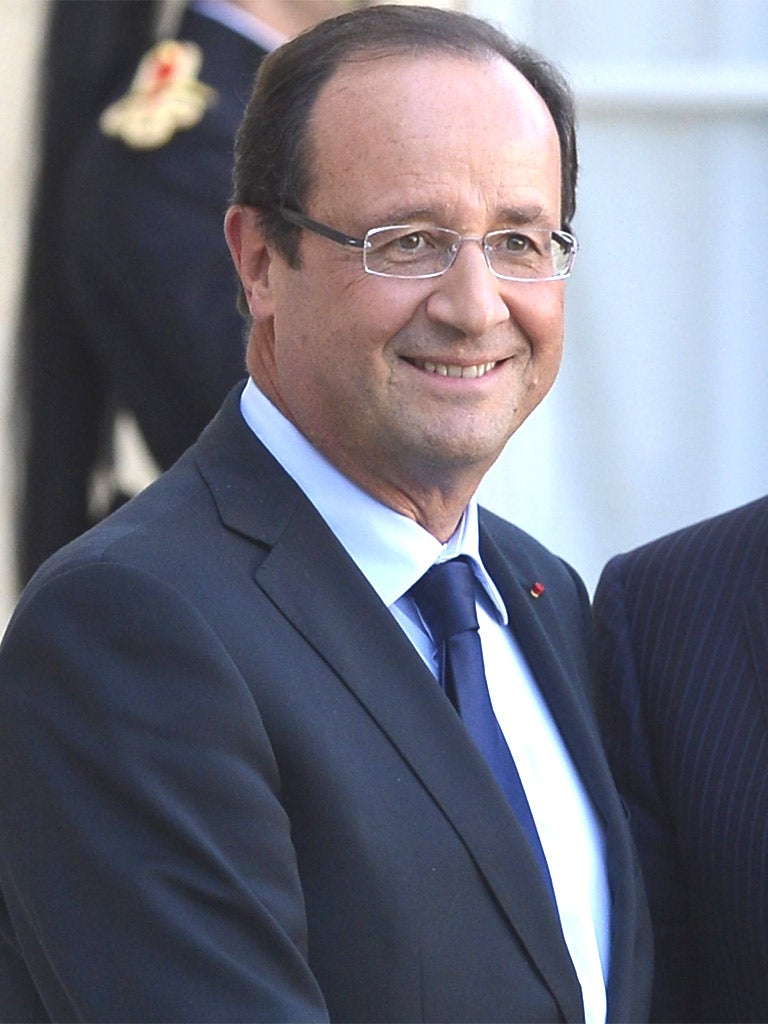War in Mali 'inevitable' as Europe agrees to foot the bill for tackling Islamists
Foreign Jihadists join al-Qa'ida militants as battle over former French colony looms

Your support helps us to tell the story
From reproductive rights to climate change to Big Tech, The Independent is on the ground when the story is developing. Whether it's investigating the financials of Elon Musk's pro-Trump PAC or producing our latest documentary, 'The A Word', which shines a light on the American women fighting for reproductive rights, we know how important it is to parse out the facts from the messaging.
At such a critical moment in US history, we need reporters on the ground. Your donation allows us to keep sending journalists to speak to both sides of the story.
The Independent is trusted by Americans across the entire political spectrum. And unlike many other quality news outlets, we choose not to lock Americans out of our reporting and analysis with paywalls. We believe quality journalism should be available to everyone, paid for by those who can afford it.
Your support makes all the difference.The prospect of a war in northern Mali has taken a major step forward with European governments backing an international force to retake the region from Islamist groups. While preparations begin for a military intervention, reports have emerged of foreign Jihadists arriving to support the Al Qa'ida-linked militants in the desert north of the former French colony.
After months of deadlocked talks over the recovery of northern Mali from Al Qa'ida in the Maghreb (AQIM), France has pushed for action at the UN and re-launched its co-operation with the military junta in Mali, suspended six months ago following a coup. The US, which has been lukewarm in its support for a military mission in Mali, said that a war to reconquer the region had become "inevitable", and US Defence Secretary Leon Panetta yesterday refused to rule out Washington support for training or other operations on the ground.
The attack that killed the US ambassador in Libya's Benghazi has been linked to AQIM but no evidence has been produced. Germany added its voice on Monday saying it could assist any training mission to prepare a West African force to counter Islamic insurgents.
The UN Security Council has authorised a military intervention in Mali and given its West African neighbours – in the regional bloc Ecowas – a deadline of late November to come up with a detailed plan of re-conquest for the vast, sparsely populated north. The likely outcome is an African-led force paid for by Western governments – similar to that used to battle Somali Islamists al-Shabaab.
After initially appearing reluctant to follow his predecessor's aggressive interventionism, France's new president, François Hollande, who has just returned from an African tour, has warned that terrorists must not be allowed to install themselves in the Sahel region. "It's not just an aggression against the sovereign country of Mali," he said. "It's a major issue for the security of the entire continent – and Europe."
The tough talk from Western capitals has prompted militants in northern Mali to warn that they would "open the doors of hell" for French citizens in the event of any intervention. Six French nationals are being held hostage by AQIM, which has threatened to kill them if it is attacked.
Meanwhile security sources in the Malian capital, Bamako, said that hundreds of fighters, mostly Sudanese and Sahrawis, have arrived in the last week as reinforcements to face any offensive by Malian forces and their allies.
The Islamists hijacked an uprising earlier this year by ethnic Tuareg fighters, the MNLA, who drove out the Malian army and briefly declared independence for the north. They were quickly pushed out by the better-armed and organised Islamist groups, including AQIM who have since been accused of widespread human rights abuses and cultural crimes such as the destruction of ancient sites in the fabled city of Timbuktu.
Any response to the crisis has been complicated by the coup which preceded the northern uprising. Despite repeated deadlines, the military junta in the south – which ousted an elected leader – remains in effective control of the government.
The crisis has seen about a third of the population in the north of the country flee. The conflict has also worsened the already appalling hunger season in the Sahel region - a belt of land spanning nearly a dozen of the world's poorest countries on the southern rim of the Sahara - where millions are on the brink of starvation due to drought.
Join our commenting forum
Join thought-provoking conversations, follow other Independent readers and see their replies
Comments